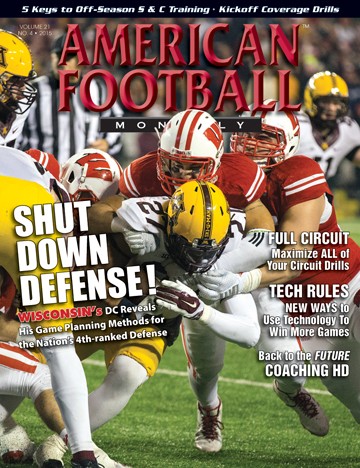Article CategoriesAFM Magazine
|
Coach to Coach: Turning Up the Heat – Eight Suggestions for Creating Your Best Summer Everby: Jared Wood© More from this issue While often a challenge, the elements of summer (extreme heat, players not being in school, having too much free time, not having transportation to activities) provide a great opportunity to create a mentally and physically stronger team. Mental toughness is only built when conditions are difficult, and extreme weather, such as summer heat, creates a great opportunity to build mental toughness. Here are some tips for creating strong minds, bodies, and team chemistry this summer.
|
|
|||||||
| HOME |
MAGAZINE |
SUBSCRIBE | ONLINE COLUMNISTS | COACHING VIDEOS |
Copyright 2026, AmericanFootballMonthly.com
All Rights Reserved





